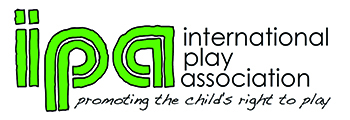
Short History of IPA and the General Comment on Article 31
In 2008 IPA engaged eight international organizations to support its original proposal for a UN General Comment. These were:
- Right to Play International
- World Leisure Association
- International Pediatrics Association
- International Council on Children’s Play
- World Organization for Early Childhood Education (OMEP)
- International Toy Library Association
- European Child Friendly Cities Network
- Childwatch International Research Network
To gather information to support the need for a General Comment, IPA organized a series of Global Consultations in 2010. Consultations on children’s right to play were held in South Africa, Kenya, Bulgaria, Lebanon, India, Thailand, Japan and Mexico.
(Report www.ipaworld.org) A summary of this project was included with the September 2010 issue of PlayRights.
A report on key findings of these Consultations was made direct to the UN Committee on the Rights of the Child in Geneva in September 2010.
In February 2011 IPA received the news that the UN Committee had agreed to produce a General Comment on article 31.
In September 2011 IPA was invited to take a lead role in the organization of the development of the General Comment, which was to address all components of article 31. That is, the General Comment will include rest and leisure, play and recreation, culture and the arts.
International Structure Formed to Support the Drafting of the General Comment
International Structure: The first step in the development of the General Comment on article 31 was to form a structure to support the process. This comprises Core and Working Groups, a Pool of Experts and an information exchange system incorporating key international organizations and agencies. A matrix illustrating the breadth of professional and organizational participation was developed. Click Here
Children’s Input: The project will include feedback from a number of existing children’s groups in different parts of the world. Prior to the development of the final draft, these groups of children will reflect upon specific circumstances and experiences that impact their enjoyment of the rights embodied in article 31.
UN Focal Group: The UN Committee on the Rights of the Child established a Focal Group to work with IPA:
- Awich Pollar, Chair (Uganda)
- Aseil al-Shehail (Saudi Arabia)
- Yanghee Lee (Korea)
- Sanphasit Koompraphant (Thailand)
- Hadeel Al-Asmar (Syrian Arab Republic)
Time-frame: The UN Committee has recommended we aim for a final draft to be presented to its January 2013 meeting. This is a demanding schedule but we aim to achieve the goal.
- First draft to Core Group in March
- Second draft to Committee in April
- Meeting with UN Focal Group and Core Group in June
- Third draft to go for wider consultation in June – August
- Fourth draft to UN Focal Group and Committee in September
- Final revision and adopted by Committee in January 2013
Some main topics to be covered by the General Comment
The General Comment will define all elements of article 31 and explain their importance in the growth and development of children and their impact on children’s overall well-being.
In the approximately twenty-page General Comment statement, challenges to implementation of article 31 will be addressed. These will include lack of awareness of adults of its importance (particularly of child-controlled play) inadequate space, excessive pressure for educational achievement, increase in structured and programmed leisure time as well as negative affects of technology, and the fact that children are rarely involved in planning for play (ref. UNCRC article 12).
Attention will also be given to groups of children requiring particular attention in order to realize their rights under article 31. Children with disabilities, girl children, children in institutions, working children and children in deep poverty are some examples of these.
Perhaps, most importantly, the General Comment also provides a detailed elaboration of the specific actions that governments need to take to ensure that all the provisions of Article 31 are fully implemented.
